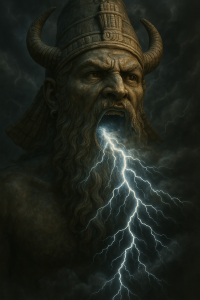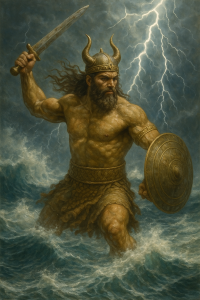 Marduk: Master of the Sacred Word
Marduk: Master of the Sacred Word
“He opened his mouth and set the storm in it. He lifted the net and enclosed her. The evil wind he let loose in her face.” (Enuma Elish, Tablet IV)
Marduk does not conquer by strength alone. His weapon is the Word, and from his mouth issues command that shapes the fates of gods and men. The “evil wind,” the net, the storm—these are tools in the hand of he who speaks with intention and authority. His voice is not mere breath, but force—me, the divine decree, anchored in precision.
Among the ancient rites of the city-temples, the high priest did not act before utterance. Incantation preceded action; formula invoked presence; sound brought cosmos from void. The world itself, in the Babylonian vision, is maintained by speech—structured, sacred, and bound to will. To walk in the shadow of Marduk is to understand the gravity of utterance. Idle speech is a betrayal of power. Complaints, rambling, lies—these are the marks of one who has forgotten the inheritance of the Word. Silence is better than unguarded speech; discipline in speech is the first seal of kingship within.
Continue reading

 Marduk: The One Who Orders Chaos
Marduk: The One Who Orders Chaos